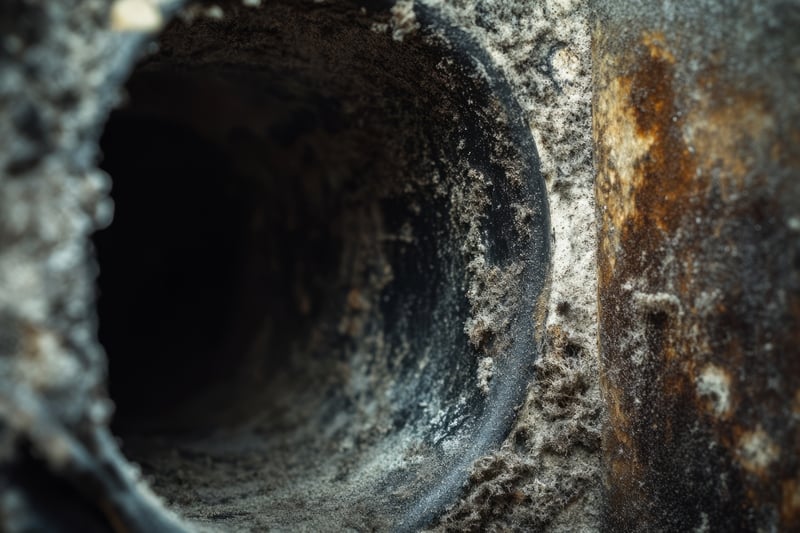
A wave of scams involving chimney and air duct cleaning is hitting New Jersey, with fraudsters using social media platforms like Facebook to lure in unsuspecting homeowners. Reports are mounting from towns across the state, where residents say they’ve been approached online by companies advertising “deep discounts” on cleaning services, only to be hit with exorbitant hidden fees or substandard work. Many of these scams are allegedly run by foreign entities that use misleading ads to appear local and trustworthy.
The Bait-and-Switch Tactics Behind the Scams
The scheme often begins with a seemingly legitimate social media ad, promising professional chimney or air duct cleaning for an incredibly low price—sometimes as low as $49. Once a homeowner expresses interest, the company quickly arranges an appointment. However, when the service provider arrives, the story changes. They might claim that the initial price covers only an “inspection” and upsell additional “urgent” services that can bring the final bill to hundreds or even thousands of dollars.
In some cases, homeowners have reported that the cleaners provided no meaningful service at all. Instead, they simply moved a bit of visible dust around, took pictures, and left. Worse still, some have allegedly used fear tactics, telling homeowners that their chimneys or ducts posed a health hazard or fire risk that needed immediate attention—pressuring them to pay on the spot.
Social Media: A Tool for Deception
These scams have spread with alarming speed, thanks largely to social media. On platforms like Facebook and Instagram, these companies can quickly and cheaply advertise to a wide audience, reaching thousands of potential customers in their local areas with minimal effort. With targeted ads and fake positive reviews, they create the illusion of a trusted local business, even though many of these companies have no established presence in the U.S. beyond social media.
The ads often use generic stock images and vague language to avoid detection, and when complaints mount, they can easily shut down one page and open another under a different name. Law enforcement agencies in New Jersey have identified several accounts operating from overseas, making it challenging to track or hold accountable.
Growing Number of Victims Across New Jersey
Communities across New Jersey, from Bergen County down to Atlantic City, are seeing a rise in complaints. Local officials and consumer protection advocates are warning residents to be cautious when considering any unsolicited cleaning service, especially those found through social media.
“Like there’s not enough to worry about with online scams, home maintenance scams can also happen online. Duct cleaning scams are nothing new (we’ve all seen those flyers that appear in the mailbox for air duct cleaning deals that seem too good, like $89 whole-house specials. Hint: if it seems too good to be true, it probably is!), but posts targeting homeowners on social media neighborhood groups are on the rise. In fact, it seems we see multiple posts for super-cheap air duct cleaning on various social media sites every single day, with users on Facebook and Nextdoor being the biggest offenders,” the American Air Duct Cleaner Association said regarding these scams.
Tips for Avoiding Chimney and Air Duct Scams
For those worried about falling victim to a similar scam, officials recommend the following steps:
- Research thoroughly: Check for local reviews on reputable platforms like Yelp or Google and ensure the business is registered and licensed in New Jersey.
- Ask for a written estimate: Reputable companies should be willing to provide an upfront estimate, detailing each service and associated cost. Be wary of anyone unwilling to provide written terms.
- Avoid quick, unsolicited offers: Many scams are marked by limited-time offers or deep discounts that seem too good to be true.
- Get a second opinion: If a company insists that you have an immediate hazard, it’s best to consult a second, well-reviewed professional before agreeing to any urgent work.
While these scams continue to affect New Jersey homeowners, increased awareness and caution can help prevent them from spreading further.
This post was originally published on this site be sure to check out more of their content







